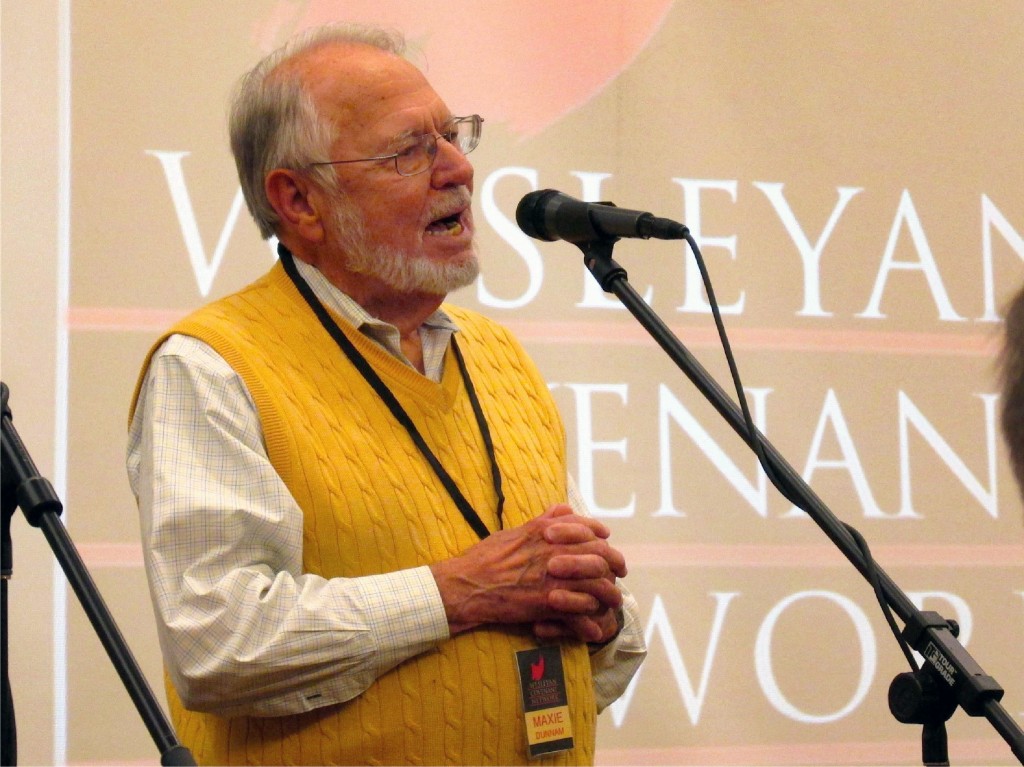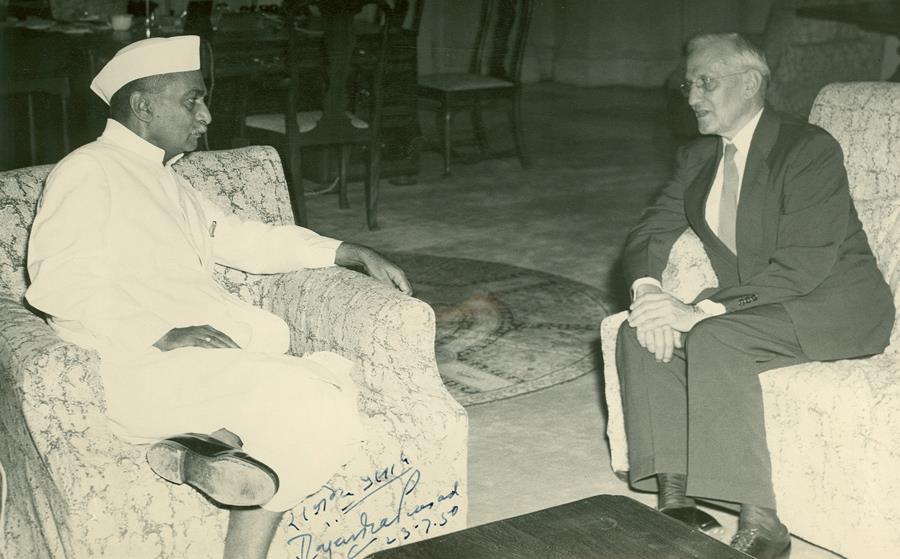E. Stanley Jones is one of five or six persons who have played a most significant role in my Christian journey. Recently, Christian History magazine devoted an entire issue to his life and work. They called him “the greatest missionary you never heard of”. (Christian History, Issue 136, page 6).
If you are one of those who never heard of Stanley Jones, I’m sorry. More, if you have heard of him but have not read his books, or know little about him, I urge you, get acquainted with him. His work as a Methodist evangelist carried him to every continent in the world. In 1964, when he was 80 years old, Time magazine said, “Only Billy Graham could rival his international reputation as a Christian leader.” (Time, January 24, 1964, page 34)
Throughout the early and mid-20th Century, Jones was one of the best-known Christian voices in the world. He wrote 28 books which were published in numerous languages, many selling more than one million copies. One of those books, In Christ, is one of two books that most shaped my theology. It may have even saved me for ministry. It came at a time of personal struggle, during the civil rights struggle in Mississippi, when “throwing in the towel” was a strong temptation. I led a small group in my congregation, meeting weekly, praying and studying that book, In Christ.
I wanted to know this man! That opportunity came when I spent a week with Jones in a “Christian Ashram”, a movement he had started, then surprisingly, later had the opportunity to travel with him for two weeks.
I’ve been thinking about Jones a lot lately as we are struggling with the issue of inclusion and tolerance, and the possible separation of my denomination, The United Methodist Church. We need Brother Stanley to inspire and guide us. He was a personification of inclusion and tolerance. In light of the political/theological situation today, Robert Tuttle has reminded us that he was too conservative for those who see themselves as theologically progressive; and he was too progressive for those who see themselves as theologically conservative. Jones learned to see good in every world religion when many in his day and ours would see other religions merely as an enemy or a threat. Jones was led by God to initiate Round Table conversations where he would talk openly with Hindus, Buddhists, Muslims, Jews, and agnostics about the ways their faith, prayer, and meditation practices affected their daily lives without any debate or call to conversion.
One of the chief ways Jones is remembered is his interreligious lectures to the educated classes of India. His seminal work, Christ of the Indian Road, sold more than a million copies worldwide after its publication in 1925, and as of 2018, had sold three million copies. He saw himself primarily as an evangelist, and he was one of the pioneering proponents of using dialogue as a means of evangelism and interfaith communication.
Keep that picture of the personification of inclusion and tolerance vividly in mind now, as you consider this word of Brother Stanley.
Christianity is at a parting of the ways. It is now at the point of where it must decide in a larger way to be definitely Christian or vaguely religious. The whole pressure is toward syncretism. In the East and the West, the demand is that we draw a line through the word “Christian” and put “religious.” This is in the supposed interest of universality. In reality it leads to “a mush of amiability”. You cannot be more universal and less Christian. Whenever you strike a truly Christian note you strike a universal note. (The Christ of Every Road, p. 244)
Jones’s tolerance and commitment to inclusion is seen in his Roundtable Conferences and the Christian Ashram, along with his genuine friendship with Gandhi. Always gracious in relation to other religious groups and genuinely interested in hearing the personal faith and experience of others, he never wavered in his commitment to his faith expressed in the simple creed, “Jesus is Lord.”
Sixty years ago, Brother Stanley made a life in Christ real and dynamic for me. Today, he is my guide as I seek to escape being taken in by what seems to be the prevailing power of the “mush of amiability.” With Brother Stanley, I want to be unapologetic in my proclamation that Jesus Christ is the living Word of God, full of grace and truth, the Way, the Truth, and the Life. With him, I believe that every one of us must be converted, and the universal Christ meets the universal need of every man, woman, and child in the world.

Rev. Dr. Maxie Dunnam is a longtime leader of evangelical renewal efforts in United Methodism. Later parts of his career included serving as president of Asbury Theological Seminary, world editor of “The Upper Room” devotionals, president of the World Methodist Council, and one of the most widely recognized leaders in the Confessing Movement within the United Methodist Church.






Comment by Henning M Poulsen on September 29, 2021 at 12:53 pm
I had the prevelige to be with brother Stanley on Ashram in Denmark 1966, and confirm every word written here.